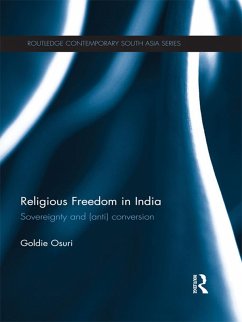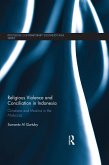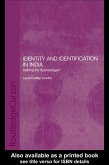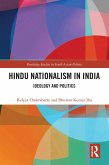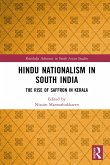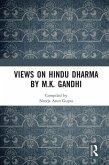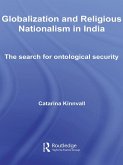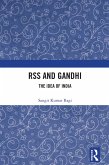Drawing on the critical and theoretical concepts of sovereignty, biopolitics, and necropolitics, this book examines how a normative liberal and secular understanding of India's religious identity is translatable by Hindu nationalists into discrimination and violence against minoritized religious communities. Extending these concepts to an analysis of historical, political and legal genealogies of conversion, the author demonstrates how a concern for sovereignty links past and present anti-conversion campaigns and laws.
Dieser Download kann aus rechtlichen Gründen nur mit Rechnungsadresse in A, B, BG, CY, CZ, D, DK, EW, E, FIN, F, GR, HR, H, IRL, I, LT, L, LR, M, NL, PL, P, R, S, SLO, SK ausgeliefert werden.

